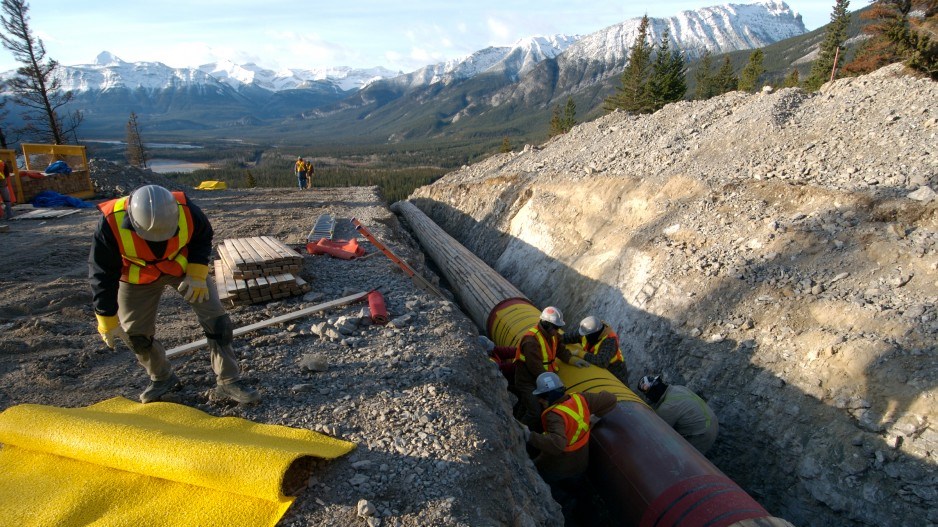An expanded Trans Mountain pipeline could come in two years behind schedule and $2 billion over the last budget estimate of $7.4 billion, according to filings with the American Securities and Exchange Commission (SEC).
On Aug. 30, Kinder Morgan Canada (TSX:KML) shareholders will vote on the Canadian government’s offer to buy the existing Trans Mountain pipeline and the Trans Mountain Expansion Project (TMEP) for $4.5 billion.
In addition to the $4.5 billion that Canada will pay for the existing pipeline, associated assets and $1.1 billion in expenditures already made for the expansion project, the Canadian government will assume the cost of twinning the existing line, and then try to find a third-party buyer or consortium of investors to buy the project.
The estimated capital cost of the twinning project has increased several times since the project first was proposed, with endless delays contributing to the escalating capital costs.
In May, when Kinder Morgan announced that the Government of Canada had agreed to buy the existing Trans Mountain pipeline and assume the cost of completing its expansion, the company did not provide an update on capital costs of completing the expansion.
The last estimate was $7.4 billion, and its completion date was estimated at December 31, 2019.
But in its proxy statement, Kinder Morgan notes that the expansion may not be completed until December 31, 2021, and could cost an additional $1.9 billion. That would put the total cost of the expansion at $9.3 billion.
In a written statement, Trans Mountain said neither the completion date nor the potential cost increase should be taken as forecasts.
"They only represent a range of scenarios used by a financial advisor in its analysis of the transaction for the purposes of advising our board," the company said in an email to Business in Vancouver.
"I think we already assumed Trans Mountain would not be completed by 2019," said Kevin Birn, director of energy for IHS Markit.
As for the potential increased capital cost of the project, it's not clear how much of that additional cost would have to be covered by the Government of Canada.
Some of the additional costs might be absorbed through increased toll rates for shippers. There are provisions in the original TMEP agreement to increase shipping tolls to cover unanticipated cost escalations.
Alberta has also confirmed it will cover up to $2 billion worth of additional costs.
“The Alberta government said they’ll backstop cost overruns up to $2 billion,” Birn pointed out. “So that would indemnify the feds on those overruns to the federal coffers.”
Any money Alberta spends on overruns would be converted to equity in the new pipeline.
Once the project is built, analysts have said they think the government will have no problem selling the project, even at a higher capital cost.
"I don't see an issue with them divesting that asset," Birn said.
Note: a previous version of this story had identified the previous estimate as being $7.4 million. This has been corrected to read $7.4 billion.




